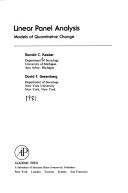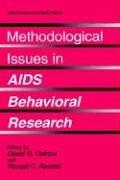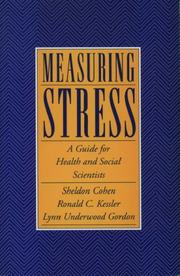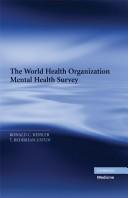| Listing 1 - 10 of 12 | << page >> |
Sort by
|

ISBN: 0124057500 132248046X 1483297829 9780124057500 Year: 1981 Publisher: New York (N.Y.): Academic press
Abstract | Keywords | Export | Availability | Bookmark
 Loading...
Loading...Choose an application
- Reference Manager
- EndNote
- RefWorks (Direct export to RefWorks)
Panel analysis --- Social sciences --- Social change --- Mathematical models --- -Social sciences --- -Behavioral sciences --- Human sciences --- Sciences, Social --- Social science --- Social studies --- Civilization --- Change, Social --- Cultural change --- Cultural transformation --- Societal change --- Socio-cultural change --- Social history --- Social evolution --- Panel studies --- Statistics --- Methodology --- -Mathematical models --- Social sciences - Mathematical models --- Social change - Mathematical models

ISBN: 0306444399 9786610206926 1280206926 030647137X 9780306444395 Year: 1993 Publisher: New York : Kluwer Academic Publishers,
Abstract | Keywords | Export | Availability | Bookmark
 Loading...
Loading...Choose an application
- Reference Manager
- EndNote
- RefWorks (Direct export to RefWorks)
Methodological problems have hampered researchers' efforts to understand and control AIDS since the beginning of the epidemic. This practical book addresses these problems by using actual health research case studies to develop strategies regarding design and sampling, measurement, and analysis and modeling issues. Researchers working on both biological and behavioral aspects of the disease will find this work a singularly effective tool to improve their study designs.
AIDS (Disease) --- Psychological aspects --- Research --- Methodology --- Epidemiology --- Social aspects --- Klinische psychologie --- Acquired Immunodeficiency Syndrome. --- Research Design. --- Sex Behavior. --- specifieke problemen. --- Methodology. --- methods. --- AIDS (Disease) -- Epidemiology -- Research -- Methodology. --- AIDS (Disease) -- Psychological aspects -- Research -- Methodology. --- AIDS (Disease) -- Social aspects -- Research -- Methodology. --- Medicine. --- Public health. --- Health informatics. --- Epidemiology. --- Sociology. --- Health psychology. --- Sexual behavior. --- Sexual psychology. --- Medicine & Public Health. --- Public Health. --- Health Informatics. --- Health Psychology. --- Sexual Behavior. --- Sociology, general. --- Medical records --- Psychology, clinical. --- Data processing. --- AIDS (Disease) - Psychological aspects - Research - Methodology --- AIDS (Disease) - Epidemiology - Research - Methodology --- AIDS (Disease) - Social aspects - Research - Methodology

ISBN: 0195121201 0195086414 Year: 1997 Publisher: New York, N.Y. Oxford University Press
Abstract | Keywords | Export | Availability | Bookmark
 Loading...
Loading...Choose an application
- Reference Manager
- EndNote
- RefWorks (Direct export to RefWorks)
Medische psychologie --- gezondheidspsychologie. --- Hygiene. Public health. Protection --- Social medicine --- Affective and dynamic functions --- Stress (Psychology) --- Stress (Physiology) --- Medicine, Psychosomatic --- Stress, Psychological --- Measurement --- Research --- Methodology --- diagnosis --- Humans --- Stress (Behaviour) --- -Stress (Physiology) --- -Emotional stress --- Physiological stress --- -Psychological Stress --- Stress, Psychological. --- Methodology. --- Measurement. --- Psychological Stress --- Stress, Psychologic --- Suffering --- Anguish --- Emotional Stress --- Life Stress --- Mental Suffering --- Life Stresses --- Psychologic Stress --- Psychological Stresses --- Stress, Emotional --- Stress, Life --- Stresses, Life --- Stresses, Psychological --- Suffering, Mental --- Emotional stress --- Mental stress --- Psychological stress --- Tension (Psychology) --- Mental health --- Psychology --- Diathesis-stress model (Psychology) --- Life change events --- Type A behavior --- Psychosomatic medicine --- Somatopsychics --- Medicine and psychology --- Mind and body --- Neuroses --- Psychology, Pathological --- Tension (Physiology) --- Adaptation (Biology) --- Research&delete& --- Stressor, Psychological --- Psychological Stressor --- Psychological Stressors --- Stressors, Psychological --- Sufferings --- diagnosis. --- Gezondheidspsychologie.

ISBN: 0198024746 1280759984 9786610759989 9780198024743 6610759987 9780195121209 0195121201 9781280759987 0197736076 0190283882 Year: 1997 Publisher: New York Oxford University Press
Abstract | Keywords | Export | Availability | Bookmark
 Loading...
Loading...Choose an application
- Reference Manager
- EndNote
- RefWorks (Direct export to RefWorks)
Measuring Stress is the definitive resource for health and social scientists interested in assessing stress in humans. With contributions from leading experts, this work provides for the first time a unified conceptual overview of the intricate relationship between stress and a variety of disorders. Its interdisciplinary approach to the selection of appropriate environmental, psychological, and biological measures includes comprehensive evaluations and practical advice regarding a wide range of measurement approaches. For environmental stress, techniques such as checklists and interviews that measure life event, daily event, and chronic stress are discussed. An analysis of psychological measurements includes methods for assessing stress appraisal and affective response. Neuroendocrine, cardiovascular, and immune measures are examined as important biological stress assessments. Contributors also uncover the conceptual underpinnings of each approach as well as the various costs and benefits of available assessment techniques. Reflecting the diversity of theoretical conceptions of stress, Measuring Stress masterfully provides integrative, incisive guidelines that will prove invaluable to students, clinicians, and researchers in health and social psychology, medicine, nursing, epidemiology, sociology, and psychiatry.
Stress (Psychology) --- Stress (Physiology) --- Medicine, Psychosomatic --- Psychosomatic medicine --- Somatopsychics --- Medicine and psychology --- Mind and body --- Neuroses --- Psychology, Pathological --- Physiological stress --- Tension (Physiology) --- Adaptation (Biology) --- Emotional stress --- Mental stress --- Psychological stress --- Tension (Psychology) --- Mental health --- Psychology --- Diathesis-stress model (Psychology) --- Life change events --- Type A behavior --- Measurement. --- Research --- Methodology. --- Stress, Psychological.

ISBN: 0521884195 9780521884198 Year: 2008 Publisher: Cambridge ; New York : Geneva : Cambridge University Press ; Published in collaboration with the World Health Organization,
Abstract | Keywords | Export | Availability | Bookmark
 Loading...
Loading...Choose an application
- Reference Manager
- EndNote
- RefWorks (Direct export to RefWorks)
Health Surveys. --- Mental disorders --- Mental health surveys. --- Mental health --- Psychiatric epidemiology. --- epidemiology. --- World Mental Health Survey Initiative.
Digital
Year: 1997 Publisher: Cambridge, Mass. National Bureau of Economic Research
Abstract | Keywords | Export | Availability | Bookmark
 Loading...
Loading...Choose an application
- Reference Manager
- EndNote
- RefWorks (Direct export to RefWorks)
Book
Year: 1982 Publisher: New York Academic Press
Abstract | Keywords | Export | Availability | Bookmark
 Loading...
Loading...Choose an application
- Reference Manager
- EndNote
- RefWorks (Direct export to RefWorks)
Mass communications --- TV (televisie) --- geweld --- agressie --- kinderpsychologie
Book
ISBN: 0124959806 9780124959804 Year: 1982 Publisher: Orlando (Fla) Acadamic Press
Abstract | Keywords | Export | Availability | Bookmark
 Loading...
Loading...Choose an application
- Reference Manager
- EndNote
- RefWorks (Direct export to RefWorks)
Agressivité --- Télévision --- Violence à la télévision --- Aspect social --- Television broadcasting --- Violence on television --- Aggressiveness --- Social aspects --- Agressivité --- Télévision --- Violence à la télévision --- Television broadcasting - Social aspects - United States --- Violence on television - Social aspects - United States
Book
Year: 1997 Publisher: Cambridge, Mass. National Bureau of Economic Research
Abstract | Keywords | Export | Availability | Bookmark
 Loading...
Loading...Choose an application
- Reference Manager
- EndNote
- RefWorks (Direct export to RefWorks)
Data on 2225 men and 2401 women from the National Comorbidity Survey were used to examine the impact of psychiatric disorders on employment and conditional work hours and income. Two-stage instrumental variables methods were used to correct for the potential endogeneity of psychiatric disorders. The instruments used (the psychiatric disorder history of the respondent and respondent's parents) passed tests of the overidentifying restrictions. Psychiatric disorders significantly reduced employment among both men and women. Evidence was also found of small reductions in the conditional work hours of men and a substantial drop in the conditional earnings of men and women, although these findings were somewhat more sensitive to the estimation methods and specification of the model.
Digital

Year: 2013 Publisher: Cambridge, Mass. National Bureau of Economic Research
Abstract | Keywords | Export | Availability | Bookmark
 Loading...
Loading...Choose an application
- Reference Manager
- EndNote
- RefWorks (Direct export to RefWorks)
We examine long-term neighborhood effects on low-income families using data from the Moving to Opportunity (MTO) randomized housing-mobility experiment, which offered some public-housing families but not others the chance to move to less-disadvantaged neighborhoods. We show that 10-15 years after baseline MTO improves adult physical and mental health; has no detectable effect on economic outcomes, youth schooling and youth physical health; and mixed results by gender on other youth outcomes, with girls doing better on some measures and boys doing worse. Despite the somewhat mixed pattern of impacts on traditional behavioral outcomes, MTO moves substantially improve adult subjective well-being.
| Listing 1 - 10 of 12 | << page >> |
Sort by
|

 Search
Search Feedback
Feedback About UniCat
About UniCat  Help
Help News
News